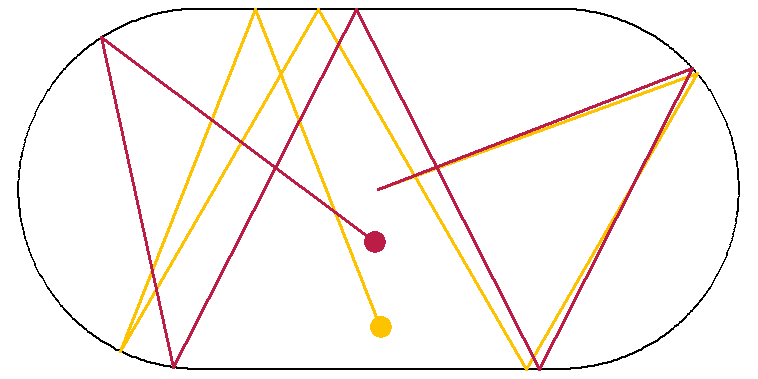Success in Small Steps
A lot of times I’ve failed by biting off more than I can chew. I get in over my head and lose motivation. A lot of times I’ve succeeded it’s by starting small and slowly building up a roll of successes.
When I was in highschool I tried to build a simulation of the solar system for a project. I wasn’t satisfied with building ellipses, I wanted to take into account all the N-body interactions. It started off alright, but quickly I was out of my depth trying to model all the bodies and got the code in a broken state I couldn’t recover. I ended up with pages of code that didn’t work at all. If I had started smaller with building a single elliptic orbit, and then another, before even considering multibody interactions I would at least have had a good state to revert to, and would have been more likely to succeed with the complex problem.
When I returned from a long overseas trip I was looking for work. I wanted to build something to help showcase my skills for prospective employers. I had the idea of building a Javascript illustration of a chaotic system; where a small change in starting points results in a very large difference in outputs. I spent a lot of time learning Javascript, agonising over whether I use SVG or the canvas for performance, writing vectorised functions so that I could extend it into 3 dimensions, and so on. I never actually built a functioning application because I got so bogged down on building it the right way; thankfully my CV and cover letters got me sufficient interviews. I would give myself the advice to build something simple; even programming a moving ball would be a success I could showcase. Then I could slowly build on that, adding a wall, adding bounce physics, adding angles. I tried to build a physics engine while learning web technology at the same time, it was too hard for me and I had nothing to show for it.

This blog has examples of taking small steps. The jobs posts show lots of small steps in trying to build a pipeline for extracting information from job adverts on the internet. For example I had a post on extracting job title words from ad titles (e.g. “Manager” or “Executive” or “Engineer”). I wanted to improve this so I wrote follow ups on making plural words singular, and another on rewriting “Head of Marketing” to “Marketing Head”, and putting them together in a normalisation strategy which created a better way to discover job titles in a dataset. The initial rough approach gave me confidence that the system could work, and then I could build upon that and improve it.
This is why I recommend starting with simple models and working towards a complex solution. Whenever I’ve tried to start with a complex model I’ve spent too much time trying to get out and engineer features in the data without actually understanding it. Now I start with building an evaluation criteria, starting with a simple model and slowly building on it. Adding features to get incrementally better, and learning more about the data at the same time.